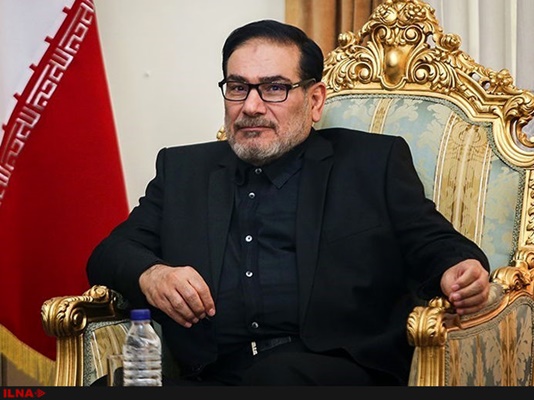Secretary of Iran’s Supreme National Security Council (SNSC), Ali Shamkhani, underlined that negotiation with the US is of no use anymore.
“We can’t waste Iranian nation’s time and energy by resorting to hollow opportunities,” he was quoted as saying in an interview with the Persian-language Tehran Foreign Policy Studies Quarterly.
He said with the US withdrawal from the Iran nuclear deal last year, the Islamic Republic has entered a new era.
“US President Donald Trump thinks that he can impose his unreasonable and arbitrary decisions on us through exerting more economic pressure. But he should understand this fact that the Iranian nation enjoys great capacities to leave behind the current crisis,” he said.
The Iranian official then noted that the Islamic Republic will not give in to Trump’s pressure and said the message of Iran’s government is clear: ” Sanctions can’t be used as a leverage to have us sit for new round of talks.”
He said the Iranian nation has managed to foil the US plots over the past four decades and added this time, by relying on “our domestic capacities, we can foil the new plot once again.”
According to Shamkhani, the US violation of the JCPOA has contributed to the current chaos in the international community and tarnished the US’ image more than that of Iran.
“The trade-style policies of Trump in various international areas have led to the plummeting status of the US in the international arenas and the future US governments will have troubles to cope with the challenges created by Trump’s policies.”
Elsewhere in the interview, the Iranian official said Iran decided to remain in the JCPOA to give diplomacy another chance.
Elaborating on the European Union’ repeated delays in the implementation of the Special Purpose Vehicle (SPV) to keep trade ties with Iran despite US sanctions, he said “we believe the EU is not ready to pay any price for preserving its ties with Iran amid the US sanctions. So, we will face our problems by relying on our own capacities. But this doesn’t mean that we are going to give up our rights under the nuclear deal.”
He then referred to the US failures in the region and said the US government is grappling with the unexpected policies of Trump.
“Trump’s policies have led to the creation of a multi-polar world which is far from the main dream of American politicians throughout history. Trump’s adventurous policies have turned the US into a devil state in the world.”
Shamkhani blamed the US for creating the terrorist groups in the region and said the wrong policies of big powers have contributed to the strengthening of terrorism in the region.
“The US with its dark record in sponsoring terrorism can’t claim it is fighting the terrorists. They have created the ISIS themselves. Meanwhile, some regional states are contributing to terrorist efforts in the region. As reports say Saudi Arabia is involved in many terrorist measures in the region and the world.”
On the regional policies of the Islamic Republic, Shamkhani said “our policies have been aimed at creating peace and security in the region. Our proposed solution to the regional challenges including those in Palestine, Syria, Bahrain and even Yemen has been to give voice to the regional people.”
He referred to the Syrian crisis and said instead of exporting terrorism to Syria and prescribing imposed solutions to the war-torn country, the world should provide a chance for the Syrian people to decide for their own future.
He also described the US policy towards Iran as paradoxical and said on the one hand the US president says he is willing to talk with Iran without any precondition and on the other hand his secretary of state sets conditions for Iran for any talk.
“A review of the US conditions for talks with Iran reveals that most of them refer to Iran’s regional influence. This shows that the US’ problems with Iran is not limited to the nuclear issue,” he said.
He also blamed Saudi officials for their reliance on the foreign powers and said the Saudis have used their wealth against the interest of the regional states.
He then referred to the Zionist regime’s strategies in the region and added the regime has failed in all its war against the Resistance Front.
“The Resistance Front’s military capabilities have increased dramatically over the recent years and this has put the Zionist regime in a defensive position. That’s why the regime has extended the hand of friendship to the regional Arab states,” he concluded.
